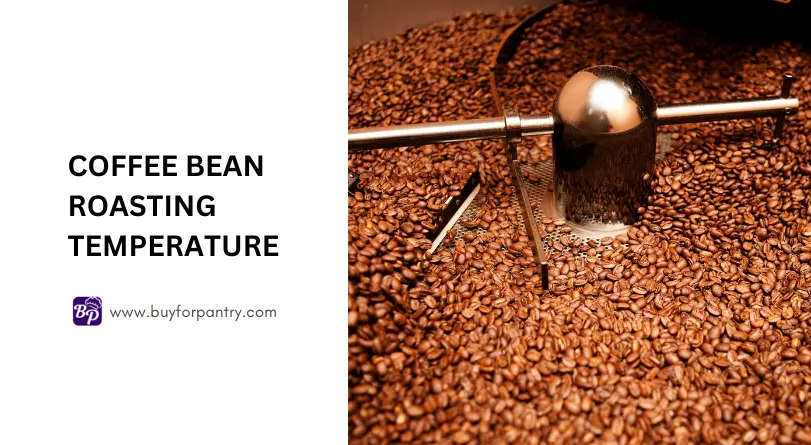Temperature has a huge impact on the outcome of your cup of coffee. The chemical processes that alter the flavor and aroma of your coffee are caused by changes in temperature.
So, does coffee change with temperature? Let us find out together.
Studies have shown that warmer temperatures effectively alter the flavor compounds in coffee, causing increased bitterness and decreased sweetness. However, it is important to note that these changes also depend on the type of coffee and the brewing method used.
For example, brewing methods tend to produce a colder, more consistent cup of coffee, allowing for more stable flavor compounds. In contrast, espresso tends to be served at a much hotter temperature, which can affect its flavor profile.
To find out how temperature affects the flavor, fragrances and taste of coffee, keep reading this article.
The effect of temperature on coffee
Coffee is made up of hundreds of different compounds, such as caffeine, oils, and proteins. These compounds are what give coffee its unique flavor and aroma. When coffee is brewed at a higher temperature, more compounds are extracted from the beans.
The result is a more intense and flavorful cup of coffee. However, if it is prepared at too high a temperature, a bitter taste can also result.
On the other hand, if brewed at a lower temperature, fewer compounds are extracted from the beans. The result is a weaker, less flavored cup of coffee.
Brewing at too low a temperature can also result in an undesirably watery cup of coffee.

Ideal temperature for coffee
The ideal temperature for brewing coffee is between 195 and 205 degrees Fahrenheit. This interval strikes a balance between extracting everything good from the beans and avoiding off-flavors that could arise from over-extraction.
When water reaches its boiling point of 212 degrees Fahrenheit, it is too hot to brew coffee. At this temperature, the water will begin to extract the oils and other compounds from the beans that are responsible for bitterness and astringency. As a result, your coffee will taste burnt and overly harsh.
On the other hand, if the water is too cold—below 195 degrees Fahrenheit—the coffee won’t extract enough and will taste weak and watery.
Coffee bean roasting temperature
Another important temperature factor that affects coffee is the roasting process. The coffee beans are roasted at temperatures between 350 and 400 degrees Fahrenheit.
The amount of time the beans are roasted also affects the flavor; light roasts will be more acidic, while dark ones will be bitterer.
Related: How many calories are in coffee?
Does temperature affect coffee extraction?
Temperature is a key factor in extracting the flavor ingredients from the coffee beans.
When coffee beans are exposed to water, a process called extraction occurs. This is what gives coffee its unique flavor and aromas.
During extraction, the water breaks up the coffee grounds and dissolves compounds such as acids, sugars, and oils. These compounds are absorbed by the water and carried into the bowl.
The rate of extraction of these compounds can be affected by a number of factors, including grind size, contact time, and water temperature.
Generally, hotter water allows for faster extraction, while cooler water allows for slower extraction. This is why making iced coffee can be so tricky: if the water is too cold, it won’t extract all the desired compounds from the beans; if the water is too hot, the resulting coffee will be bitter and over-extracted.

Does temperature affect the dissolution of coffee?
The solubility and volatility of coffee components are greatly affected by temperature.
Coffee beans are more soluble in hot water, so the hotter the water, the faster the coffee will dissolve.
However, once the coffee has dissolved, adding more heat will not cause it to dissolve any faster. In fact, if the water is too hot, it can make the coffee taste bitter.
Therefore, if you want to dissolve the coffee quickly, use hot water, but do not leave it too hot.
Does temperature affect caffeine content?
Brewing coffee with cold water results in a cup of coffee with as much caffeine as one brewed with hot water.
However, there are a few things to keep in mind. Cold brew takes longer than hot brew, so you’ll probably end up drinking more coffee if you make iced coffee at home.
And because hot water extracts more flavor from the beans than cold water, iced coffee can still taste weaker even with the same amount of caffeine.
Final Thoughts: Does coffee change with temperature?
Temperature plays a fundamental role in the coffee brewing and roasting processes.
Coffee making is based on extraction. When coffee beans are roasted at a higher temperature, they lose moisture more quickly. The result is a darker roast with a more intense flavor. It also has a richer flavor that many coffee aficionados prefer.
Coffee that is roasted at a lower temperature has a lighter color and a milder flavor. It retains more of its original flavors as it spends less time in the roaster.


